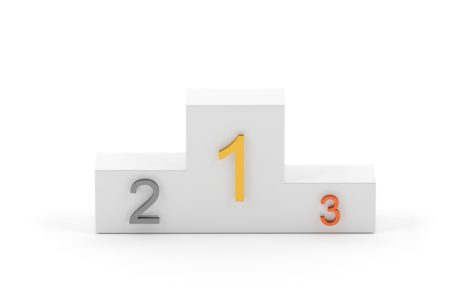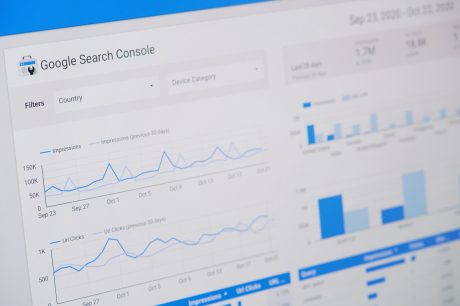How to Optimize a Webpage for a Specific Keyword or Phrase?
There is a set of good practices that help to optimize a website so that it appears as high as possible in search results. Below we present the most important ones.

In the beginning, it’s worth mentioning that you can easily and quickly test any website for all factors (not just those described in this article) in the Keyword Placement tool. The usage of all best practices when optimizing for a given keyword is one of the basic and first SEO steps that must be implemented in order for a website to be in the top 10.
All the recommendations below were created as a result of many years of observation and one-dimensional tests in a closed test environment.
Keyword in page title
This is where the optimization of every website should begin. The keyword in title has always had a significant influence on ranking.
Expert advice: Also make sure that the keyword is at the beginning of the title, and check if the title itself is not longer than 60 characters.
Keyword in url
A URL after the title is one of the basic things in SEO. The trick is to make your address concise, short, and with your most important keywords. Usually the address should be shorter than the title and the h1 header.
Expert advice: Think carefully about the URL structure on your site as URLs shouldn’t change. The path, just like the domain, is like wine – the older the better. If you absolutely need to change the address, use redirection 301 from the old address to the new one.
Keyword in meta description
The keyword in meta description can be helpful in increasing your click-through rate (CTR) as well as determining the ranking itself. The keyword can be anywhere, but the total length of the meta description should not exceed 156 characters.
Expert advice: To further increase clickability in meta description, you can also use special characters such as star ☆.
The keyword in the h1 heading
The keyword in the h1 heading is a bit of help for search engine crawlers in determining the ranking. However, it doesn’t have as much impact as the keyword in the title tag.
Expert advice: Try to ensure that your title content is not an exact copy of the title tag. In the h1 tag you can, for example, use synonyms or use a keyword in a variant. The content of the h1 tag may be slightly longer than the title tag. Try not to exceed 10 words and make the user interested in reading the article.
Keyword in the alt attribute of the image and the filename of the image
It doesn’t matter as much as the title keyword, but it will help you position the image itself in Google Images.
Expert advice: Describe the picture according to what is on it. It’s not about keyword stuffing. Therefore, the image for the page should be selected in such a way that describing it with a keyword is a natural process. Before choosing an image on your website, check what is currently displayed at the top of the results in Google Images and select the image so that it is similar, but of better quality and as much as possible corresponds to the user’s intention.
Keyword in the most common words on the page
Search engine robots check what words are on a given page. They can study their saturation and what are the relationships between words. On this basis, they can, for example, define the subject of the article and assess its quality. Make sure your keyword is at the top of the list of the most common words on the page. This is not about artificially stuffing words (this can penalize the website or lower its ranking). Make sure that your text sounds natural when read aloud and that it contains adequate saturation for your main keyword.
Expert advice: The mere saturation of the article with one word or phrase is not enough to fully optimize the website. Check the TF IDF tool what other words should be in your article to fully cover the topic of the article.
Check out the article the day after writing
Looking at the article with a fresh eye the next day allows you to find new errors (typos, punctuation errors, etc.) and ultimately improve the article. Remember that attention to detail is what distinguishes a good article from a great one. The famous writer Ernest Hamingway was famous for saying:
“Write drunk, edit sober.”
What else can be optimized?
Using your keyword in the right places on your website is one of the most basic SEO practices. However, at a time when Google uses the Rank Brain algorithm in many cases, this may not be enough. So what else can be done apart from perfect keyword saturation in the right tags and creating great content?
- Make sure you make full use of all the possibilities of optimizing the page for a given word or phrase. To do this, use the Keyword Placement tool. The tool is constantly updated according to changing ranking factors.
- Perform a site audit and check what else can be improved. The SEO audit tool at DiagnoSEO checks the website for over 200 of the most important ranking factors. In addition, later in order to find new improvement opportunities on your site, you can also check the entire site with Crawler tool.
- Perform a competition analysis from the top 10 organic Google results. Check the Competitors Analysis tool to see which ranking factors your competitors are using. Find out exactly what is missing from your site so that it can reach the top rankings (whether keyword saturation, content length, backlinks, and more, among other things).
- Check what words are missing from your website. In the TF IDF tool, enter your website URL and the URLs of your top 10 competitors. A quick analysis will tell you exactly what words or phrases are missing from your website. It is not only about saturating the page with words, but about supplementing the content so that it fully describes the missing issues.
- Refine the content to the limit so that it not only fully corresponds to the intentions of the user, but also that it is of the best quality in terms of readability, usability and has the right tone. Most Internet readers do not read, but scan the article with their eyes. That is why the proper division into paragraphs and subheadings and the use of bold are so important. Read more about this and Content Editor in the article “How to write the best content for SEO“.
According to your experience, what ranking factors are the most important when optimizing a website for a given keyword? Let me know in the comments.



July 27, 2021 at 6:11 pm |
While the focus on keywords is essential, equally important is ensuring that the content remains engaging and informative for users.
May 24, 2023 at 7:28 am |
I found the tips on optimizing keywords in titles and URLs particularly useful.